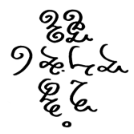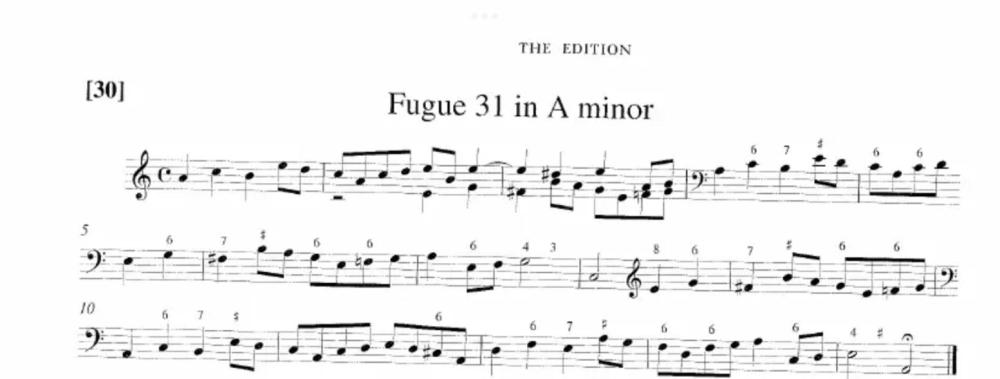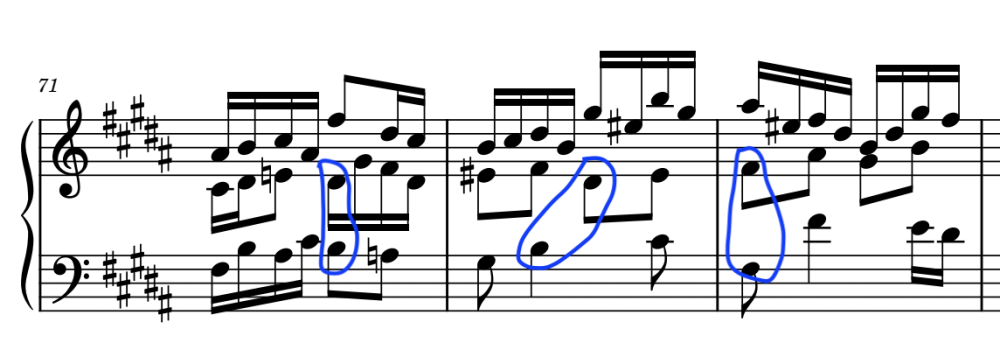All Activity
- Past hour
-
Henry Ng Tsz Kiu started following Double Fugue in E-flat major
- Today
-
So, after one long, sleepless night of nonstop composing, springtime inspiration has blossomed into what I would consider to be one of my best pieces to date. The 2nd subject and its exposition actually were originally part of a totally different, unfinished fugue in F minor, and as such its thematic relevance isn't as prominent as that of the main subject, though significant in certain passages nontheless. Enjoy! YouTube video link:
-
This sounds great. It sounds like a piece we would hear at a luxury party. Excellent counterpoint all around in this piece.
-

Does this sound boring?
Atlantis_ replied to Atlantis_'s topic in Incomplete Works; Writer's Block and Suggestions
I need to figure out how to reduce the crackling in Cubase without lowering the strings volume. I tried adjusting the ASIO but no luck. Update: readjusted the reverb plug-in. It needs more readjusting. -
PeterthePapercomPoser started following Fugue in A minor(From the Langloz Manuscript)
-
Sonata_5 started following Fugue in A minor(From the Langloz Manuscript)
-
Hello! This is my realization of the 31st fugue from the Langloz manuscript. I would love to have some feedback on it. Fugue Realization: Langloz Manuscript 31.pdf Partimento bass is below
- Yesterday
-

Fughetta in B major.
Fugax Contrapunctus replied to Fugax Contrapunctus's topic in Piano Music, Solo Keyboard
Thank you very much. I find it surprising that I've managed to make it more palatable to the ear than some other denser fugues of mine, but like you say it is only the masters that know how to manage contrapuntal density, Fortspinnung and diversity of approaches towards the simplest materials to grant their usage in each given piece the pinnacle of transformative richness. Those are abilities I still need a long time of honing and perfecting my craft and skills in order to acquire, let alone take them to the same level of greatness as our mighty forefathers. To be honest, I'm not so sure I agree with you here. Let's assume we did in fact exchange and cross voices at the points you noted: just in the first measure, we would have to make a descending tritone leap, and the rising bass from the lower F-sharp to the higher G-sharp in the 3rd beat/1st part of the 2nd beat in what is currently the middle voice would gives us a span larger than an octave in a continuous rising melody, which makes even less sense to me. Even if we take the twist the bass makes in the 2nd beat (rising to B and then descending to A-sharp before rising again) we would still have the melodic span of a major 7th in a non-chordal arrangement (A# C# D# G# instead of A# C# E G#, as would be more expected and acceptable in my opinion). Just now, after revising it again, I have made some changes to the bass and middle voice in b. 73 as follows (as well as adding an A-sharp so as to avoid parallel fifths between the middle and upper voices in the weak 16th-notes of the 2nd beat). I also slightly altered the upper voicing of the supertonic dominant chord before the finale for slightly more rhythmic variety. Regardless, thank you for your remarks, for even if the ones you made didn't make it into this (hopefully final) version, it certainly did make me come back and check for other potential mistakes, which I did end up finding and thus, correcting. 🙂 -

Fughetta in B major.
Luis Hernández replied to Fugax Contrapunctus's topic in Piano Music, Solo Keyboard
It sounds really delicious. The baroque counterpoint is fantastic. I love that you like to compose in that style. Sometimes there are fugues that “tire me out” but sometimes the opposite. Of course, I don't get tired of those of the great composers, haha. This one either, to be honest. Regarding what has been said about the tenths, I think it is common practice (and one of the difficulties in the interpretation) to cross the hand notes, although it is not indicated in the score, probably because in baroque the clarity of each voice predominates, not so in romanticism where these things are noted due to the density of texture. Greetings. -

Fughetta in B major.
Fugax Contrapunctus replied to Fugax Contrapunctus's topic in Piano Music, Solo Keyboard
Indeed, that is how I feel about it. Had I got discouraged by my initial lack of skill and abundant contrapuntal mistakes from the get go, I would have ended up disheartened and giving up on composition entirely. My career would simply had died before it could have even started, and I wouldn't have enjoyed composing so many of my fugues, as I set out to do from the very beginning. Regarding the 10ths in b. 71~73, the latest edition has those corrected alongside some minor voicing changes here and there as well. Thank you for your criticism and kind words, Henry 🙂 -
Hi Henry Thanks for your response! I’m not entirely sure what you mean by “advanced level”, but I’ve had the good fortune to teach many extraordinarily talented composers over the years, and some of my students have gone on to win very prestigious competitions and receive commissions from major orchestras and ensembles. What we cover in lessons would very much depend on your own goals as a composer. I can offer detailed, constructive feedback on works-in-progress, discuss and analyse important pieces of repertoire, explain and demonstrate techniques to take your music to the next level… whatever you want! If that interests you (or anyone else), you’re very welcome to message me through super prof. Patrick
-

Fughetta in B major.
Henry Ng Tsz Kiu replied to Fugax Contrapunctus's topic in Piano Music, Solo Keyboard
That’s the most important thing: every composers must be much less skilled in their first compositions, and noticing how bad they are actually prove how much you have improved, instead of having the same work as your “masterpiece” in all those years. I have listened to the original piece, and believe me it isn’t as bad as you think, it’s a great effort for a blossoming composer. Trying with tons of error will be much better than trying to be perfect in your head and afraid to have a single error in your work, because only writing with errors and spotting them help you improve, which your present day compositions prove it. Henry -

Fughetta in B major.
Fugax Contrapunctus replied to Fugax Contrapunctus's topic in Piano Music, Solo Keyboard
The main issue with transposing the bass an octave upwards between said bars so as to avoid the excessive distances found between all three voices is melodic coherence: in order to keep the bass line as melodically stable as possible in order to avoid uncomfortable leaps or clashes with the middle voice, the whole line had to stay in the lower octave. Still, I should probably look into it again so as to maybe find a potential workaround. For context, here's a link to the version first published in the original post: As you can most likely tell, my counterpoint back then was simply just deplorable. The last commenter was exceptionally kind with their review, given how terribly the rules of counterpoint and mandatory resolutions were handled, plus how awfully disappointing the structure and scant usage of actual contrapuntal devices both were (a general trait unfortunately carried over into the final revamp, save perhaps for the last-time addition of a false entry in b. 81~82). If I recall correctly, I was barely 14 at the time, and after listening to Bach's Kunst der Fuge in its entirety during the late Summer, I decided to try my hand at writing something in his style, perhaps as a way of channeling the mind-bending awe and admiration I felt for the Master's work, or maybe as a rather childish experiment that wouldn't carry over beyond the realm of first-time mediocrity. In spite of how bad my first pieces were, I decided to press on, still knowing my "music" at the time was far less than subpar at best, with a sense of humility, receptiveness and self-improvement to which I owe the place my skills currently stand at. And believe me, as evident as it is from the score in the original post from that year, if you think your counterpoint after composing for 10 years was "worse as shxt", then mine must have been at least 10 times worse than that! As much as I now absolutely loathe the lack of skills in counterpoint my pieces used to display back then, and usually (for the most part) can't stand to look back at my oldest compositions, I still cherish the innocence and naivity from which it all started and came from, which is why I still keep those fugal abominations in a dedicated trash folder instead of deleting them for good: to always keep reminding myself that I too was once nothing but a humble and ignorant novice in the myriad complexities of this vast world that is musical composition. -
PtrkBrnnn joined the community
-
Henry Ng Tsz Kiu started following Fughetta in B major. and Varied Gestures
-
Hey Peter, It always happens to me lol! Yup I need a bleak opening to counter the hyper-for-nothing ending of the first movement and reminds myself what’s happening in the world now. I love hyper motivic, it’s the easiest way to compose for me haha! And you are very acute to point up that the Tranquillo foreshadows the Religioso. In fact, I had the idea for Religioso earlier than the Tranquillo, and I told myself I need some foreshadowing of it before the fugue, otherwise it would sound odd and incoherent for me! I love the Mesto section myself! Yup I have mentioned before, I learn from Mozart’s fugue for two pianos for the constant dissonances of false relation for a subject entry. Btw, don’t link me with that bad man lol! I don’t know what that bad man had in his mind, but for my part, that 6 part fugue is technically the most difficult thing I have ever written. That said, it’s actually the easiest part to write in the entire 2nd movement because you’re just need to follow the rules, even though a tedious one, but other parts take hearts and soul to finish. For the pentatonic figures, since I know the whole structure of the piece, I think I must invite some pentatonic foreshadowing in the fugue section before getting to the pentatonic proper later in the final part of the piece, as this would make the structure much more reasonable! Wow I forget the term Metric Modulation since out of the university, thx for reminding haha! I really have something pious in my mind, though not related to any religions. And that on beat switch actually creates another layer of rhythmic dissonance so it’s good! Yup, it resonates b. 159 like @Fugax Contrapunctus said and foreshadow the last bar of the piece. It signifies the frog croak of heart. Yeah the energy is overflowing which even shocks me. The in extremis section is always my favourite section, so complicated in the emotion. And I love the pizz. gliss ending too, sounds philosophical to me and definitely not as bleak as the ending of Sibelius 1st Symphony. To be honest, I don’t know where will I go. Just like after I finished my Clarinet Quintet, I would never imagine writing this Sextet and finish it much better than the Quintet, I will just keep exploring. Short term projects would be for shorter and simpler pieces for relaxation. Thx! Henry
-
Hello @Modern Polyphony! Thx for giving your first post on YC to me!!! Thank you very much! I always put a lot of effort in coherence, especially a long work like this, because any incoherent or unreasonable passage can break the whole piece down. For the historical techniques, thanks to myself (lol) for studying Taurskin!s great Music History books, and also our boss @chopin for suggesting that in his review to my post of the first movement of the same Sextet. Thx for commenting! Henry
-
Hey bro, Yeah I can say that what I write here, or every of my music, is what I feel in real life, and there’s a soap in my brain to collect all those emotions. Once I need to use them in composing, they will come out while I feel nothing myself. I only use extended techniques when they are needed in the music, like fitting a narrative structure or effect, but not using them because it looks cool or it is compulsory to use them in a doctoral portfolio of music compositions lol, because those usages are useless in my opinion. Yeah I do think the fugue is harder to understand especially it’s a six part one, and I’m happy that you try listening this alone! I didn’t try greater rhythmic vitality fugue is because it doesn’t fit here, given the serious and tragic tone of the fugue, but I did use that in my Wind Quintet which was never posted here lol. I find the transition wonderful too, I don’t know how can I compose that. And the energy of the climax is too great to the extent that it sucks my own energy and causes me a month!s relapse lol! I really really love the in extremis passage myself, again I don’t know who is the real composer for that. Thx for listening and commenting! Henry
-
Hi @Giacomo925! In this occasion, I let the melody guide the vertical writing here. Yeah I think b.24 is a bit too sudden too, but I actually like b.63-64 as something like an instant reminder haha! Thx, I love there too! Thx for listening and commenting haha. Henry
-

Genesis — Epic Cinematic Track
Henry Ng Tsz Kiu replied to Aleon Raven's topic in Incidental Music and Soundtracks
Hello @Aleon Raven, Welcome to the forum! The track, like @PeterthePapercomPoser said, is varied, intense and mesmerising! I especially love your usage of voice here. I like in 2:20 you go for more contemplative passages, first with a solo violin, then with vocals. These really give contrast to previous passages. The modulation to one key higher is a standard technique in film music to heighten the drama, but I don’t mind here as it is in my favourite C sharp minor haha. The last decresendo is lovely too, esp. with the piano and harp here. The music reminds me of fellow member @olivercomposer’s film music posted here and you may check them out. Btw, I also like the visual effect here! Thx for joining and sharing your music here! Henry- 4 replies
-
- 2
-

-
- cinematic
- cinematic music
-
(and 2 more)
Tagged with:
-
Hey Pabio, How the hell for me not to reply this amazing review??!! Thx for your compliments man! Yeah I have stopped trying to find my style now. Maybe my style is combining many styles eclectically together like a curator and use them in their own places, I really don’t know haha. I always use motives since for me it!s the easiest way to compose, I can always copy and paste! But seriously, coherence is so important to every pieces of music. That is always the most important aspect for me in music. Yup that parallel fifth is a resonance to the opening of the 1st movement which also has parallel fifth. The avoidance of parallel is just to avoid the dependence of voices and that crude parallel sound, but these things are what I want here! I ALWAYS love a Phrygian cadence on C sharp minor, so beautiful. I like some of the Spanish music or Tango music because of that! Thx! I did pay some hard work for coherence by varying existing materials, I think that’s my way of composing since it’s the easiest for me haha! Believe me, the 3rd movement would be the best out of the 3 movements in the Sonata, though it is hard to play and I need some time to practice! 😄 Henry
-

Fughetta in B major.
Henry Ng Tsz Kiu replied to Fugax Contrapunctus's topic in Piano Music, Solo Keyboard
Hey Pabio @Fugax Contrapunctus! I have never heard of your first version but this revised sounds nice for me. Just beware of b.71 to 73 when there are tenths which would not be playable for most pianists! It sounds amazing to me that you already tried to compose a Fugue while only composed for few months; I never had that courage until composing for 10 years or so! And I’m sure my counterpoint back then was worse as shxt. Thx for sharing! Henry - Last week
-

Does this sound boring?
Henry Ng Tsz Kiu replied to Atlantis_'s topic in Incomplete Works; Writer's Block and Suggestions
I think this one sounds better. I always hear from our master orchestrator @gmm here how good Spitfire’s Instruments sound like. Thx for update! Henry -
Fruit hunter started following Fughetta in B major.
-
Fughetta in B major.
Fruit hunter replied to Fugax Contrapunctus's topic in Piano Music, Solo Keyboard
It sounds quite nice. I like it. I like the counterpoint really much. You definitely really spiced up the major which I’m really happy about as that just using the major scale by itself can be really bland. Sometimes I also heard some theme that sounds a bit like “deck the Halls.” -
PeterthePapercomPoser started following Fughetta in B major.
-

Does this sound boring?
Atlantis_ replied to Atlantis_'s topic in Incomplete Works; Writer's Block and Suggestions
Adding higher (subtle) legato strings. And an additional layer of Spitfire's Chamber Strings on top of Orchestral Tools: Berlin Strings -
A revised version of one of the earliest fugues I ever finished, back in early December 2019. Given I had only started composing a few months prior to that point, this fughetta was previously riddled with contrapuntal flaws and mistakes, the vast majority of which have all hopefully been corrected while leaving the melodic upper voice almost intact (for the most part). Enjoy! YouTube video link:
-

Impromptu in G Minor
SergeOfArniVillage replied to SergeOfArniVillage's topic in Piano Music, Solo Keyboard
@Thatguy v2.0 Hey, thanks for dropping by and listening and commenting. I appreciate it! You’re right, a live performance would add a lot. I wrote this piece to be easy to play, with the exception of mss. 80-88: the L.H there does complicates things, but doing “piano drills” on 8 mss of music is super reasonable, imo. I do play the piano, personally! I’ve played off and on for years.





